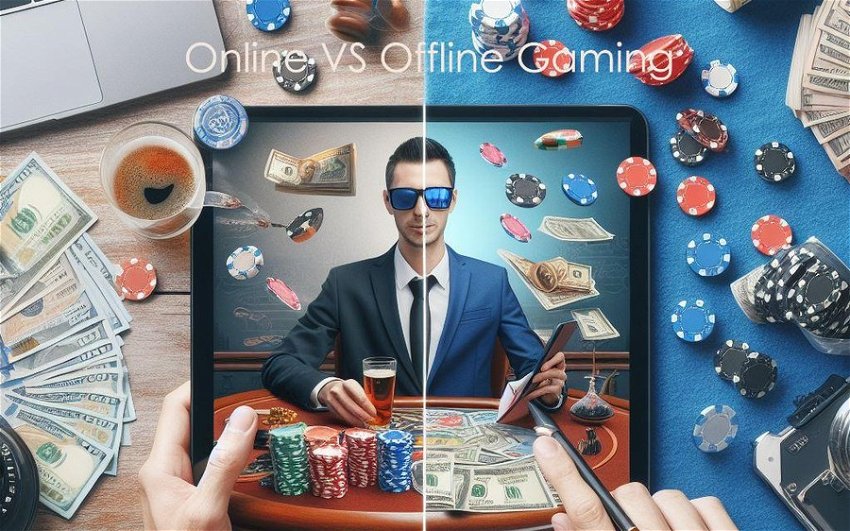The casino gaming industry continues to experience critical shifts that enhance its popularity. This growth has not only made casinos more accessible but has also ignited discussions about the future of casino gaming. As more people continue to turn to this industry for entertainment, Modern Intelligence projects the global market value to hit $200 billion by 2029.
The industry's evolution to adapt to changing technological advancements will be pivotal in meeting consumers changing preferences.
A Story of the Late 90s
In 1994, the first online casino opened its doors for business. With a modest choice of games at best, it represented a momentous shift in how casinos could be accessed and enjoyed. Despite the slow internet connection, it set the stage for explosive growth in the casino industry. Internet advancements like 5G, improved graphic technologies, and increased mobile device capability improved online gaming to such a level that it could compete favorably with real-world casinos.
According to an American Gaming Association report, online casinos witnessed traffic increase by up to 70%. This situation was fronted by advancements such as live dealer games, augmented reality (AR), and virtual reality (VR). Secure and transparent use of blockchain technology for transactions has also contributed to the rise of online casinos.
Comparing and Contrasting Offline and Online Casinos
Definition and Operation
Ad
Often called brick-and-mortar or land-based casinos, offline casinos are physical centers where players can participate in their favorite casino games. They offer a tangible experience that allows players to experience the sounds of the shuffling of cards, slot machines, and the general buzz at the casino grounds.
Their online casino counterparts offer almost similar experiences but on virtual platforms, allowing players to access their services from any place at any time. Increased access through mobile devices or computers allows these platforms to provide flexible gaming experiences. These platforms also have the potential of more players, as traveling to a physical location is not necessary.
Characterized by significant real-estate investment, offline casinos can be expensive to install and operate. Owners will need to ensure adequate staffing and purchase expensive equipment, which increases overhead costs.
However, this is different in online platforms that tend to have lesser regulatory requirements, lowering the operation expenses. Companies can thus experience higher revenues as less of the proceeds are used to meet their daily demands. Players also benefit as they can receive engaging incentives that are not common in physical locations.
Variety
In terms of Game variety, online casinos carry the day as there is almost no limit to the types of online casino games available. This allows game providers to provide thousands of varieties for different categories, including slots, blackjack, live variations, etc.
On the other hand, real-world casinos have defined physical buildings that limit the variety of games they can offer. They mostly restrict their games to table games, slots, and roulette, as they do not occupy much space. Casino operators, therefore, must critically select the kind of games to hold, usually the most popular or lucrative. This assures the clientele of quality and favored options at the expense of variety.
Thematic and in-game customization for each player is only fiscally possible on online platforms, as implementing such in physical spaces would be very costly. For instance, instead of only having American roulette, an online casino may have more regional and rare versions like the French and European ones.
Ad
The capabilities provided by cloud computing allow for more exotic variations like double-ball roulette and multi-wheel versions being played by countless people at a time. Game providers can seamlessly integrate the latest technologies into their offerings, guaranteeing an organic growth of the games' range. Bricks-and-mortar casinos cannot match this dynamism as they would have to change almost all their physical machines and tables.
Social Interaction and Engagement
Despite the features mentioned in online casinos, offline casinos allow for more social interaction. In-person and croupier interactions are incomparable, forming an integral part of their gaming experience.
Online casinos may offer interactions on their community chats, which are continually monitored to ensure no bullying and extortion. Game providers can thus be certain that they offer safe gambling spaces for users. These chats can also be a source of user feedback on areas the casinos need to improve on or keep up.
Leveraging AI, online platforms can now tailor recommendations that suit a player's tastes. By accessing user behavior and habits, game providers can recommend suitable titles that reduce the hassle of finding an appropriate game. This is helpful, especially for slot enthusiasts, as slot games can be too many for players to choose from.
To sum it up, the best gambling platform, whether online or offline, will depend on a player's preference. For example, those who prefer real social interaction during the game may opt for land-based casinos. Ultimately, casino gaming aims to provide entertaining experiences regardless of whether you play online or offline.





— Comentarios
0Se el primero en comentar